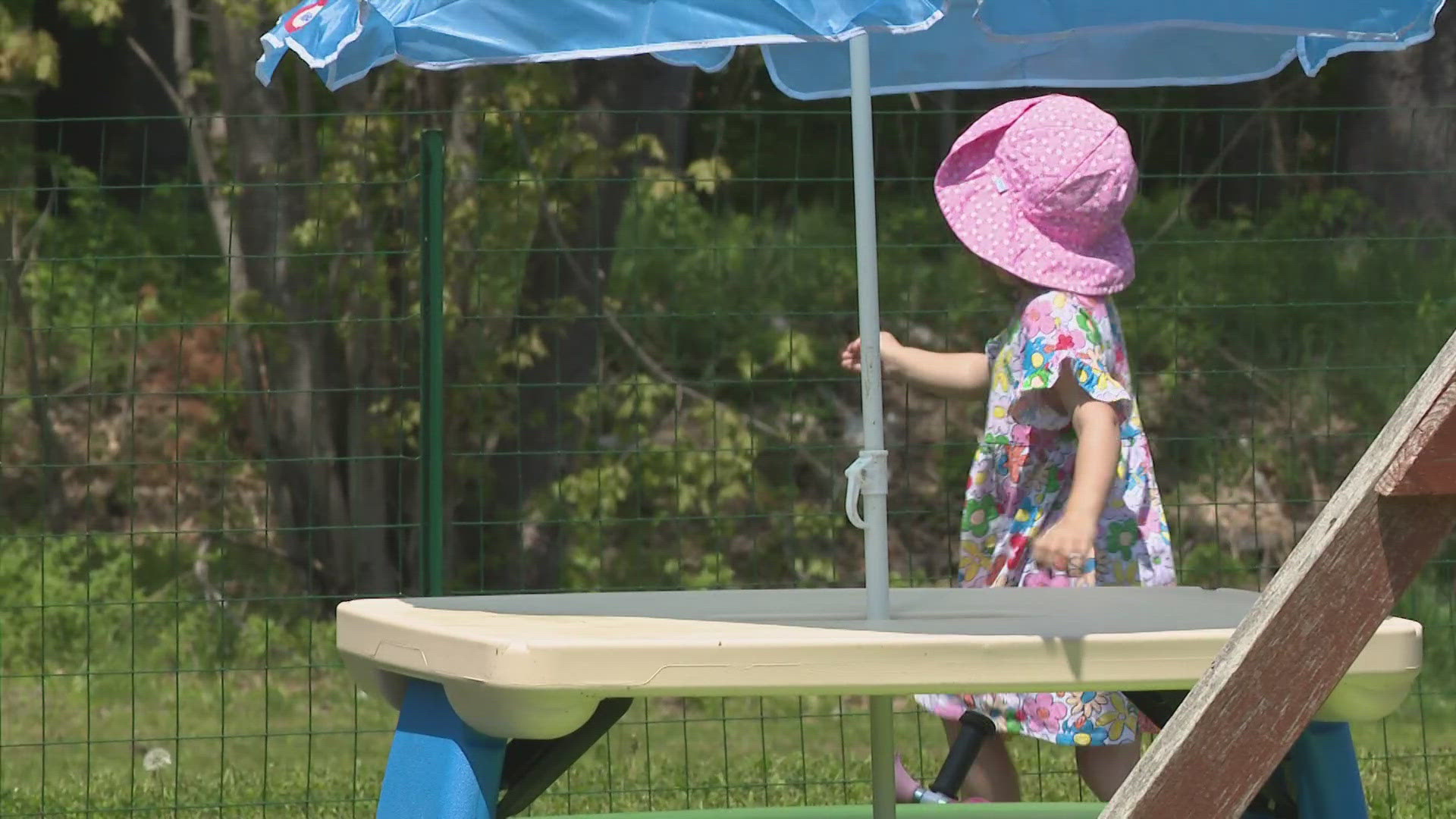LISBON, Maine — As the weather gets warmer, more families are heading to their local playgrounds and parks.
Amid the fun and outdoor activities, one mother from Lisbon, Rachel Granger, is urging others to be mindful of children with food allergies in these shared spaces.
Emma Granger's journey with food allergies began at a very young age.
"We saw about 17 doctors that night who were also amazed that a two-week-old baby could have an allergic reaction because they don't usually have enough of an immune system yet," Rachel Granger recalled of Emma's first allergic reaction, which sent her to the emergency room.
At just six months old, Emma was diagnosed with severe allergies to dairy, eggs, and peanuts.
Now three years old, Emma's condition necessitates homeschooling.
"Unfortunately, it was almost every day that I was being called at work for a moderate to severe allergic reaction that she was having, and I would have to race her to the emergency room," Rachel said.
Living with severe allergies means constantly being vigilant. Rachel watches out for signs of an allergic reaction, such as hives, swelling, or vomiting.
Despite these challenges, Emma loves socializing with other kids, though this can be difficult in places like playgrounds.
"What a lot of people don't realize is that the child that is allergic to the food doesn't have to eat the food to have a reaction. Emma has contact allergies as well, so if someone is eating a peanut butter sandwich or crackers and they smear it on one of the rails, or touched her, she would start breaking out in hives," Rachel said.
Dr. Dora Anne Mills, chief health improvement officer for MaineHealth, notes that hospitals are seeing more children with allergy problems.
"Now, we not only have skin tests but we also have blood tests as well. We are doing more testing and we do see more allergies, but we're unsure if it's from more testing we are doing or if there really are more allergies out there," Dr. Mills said.
Rachel Granger's experience has prompted her to remind other parents to be cautious.
She advises ensuring that kids do not eat food on playground equipment and to wipe their hands before continuing to play. By taking these small steps, we can help make playgrounds a safer place for children with severe allergies.

